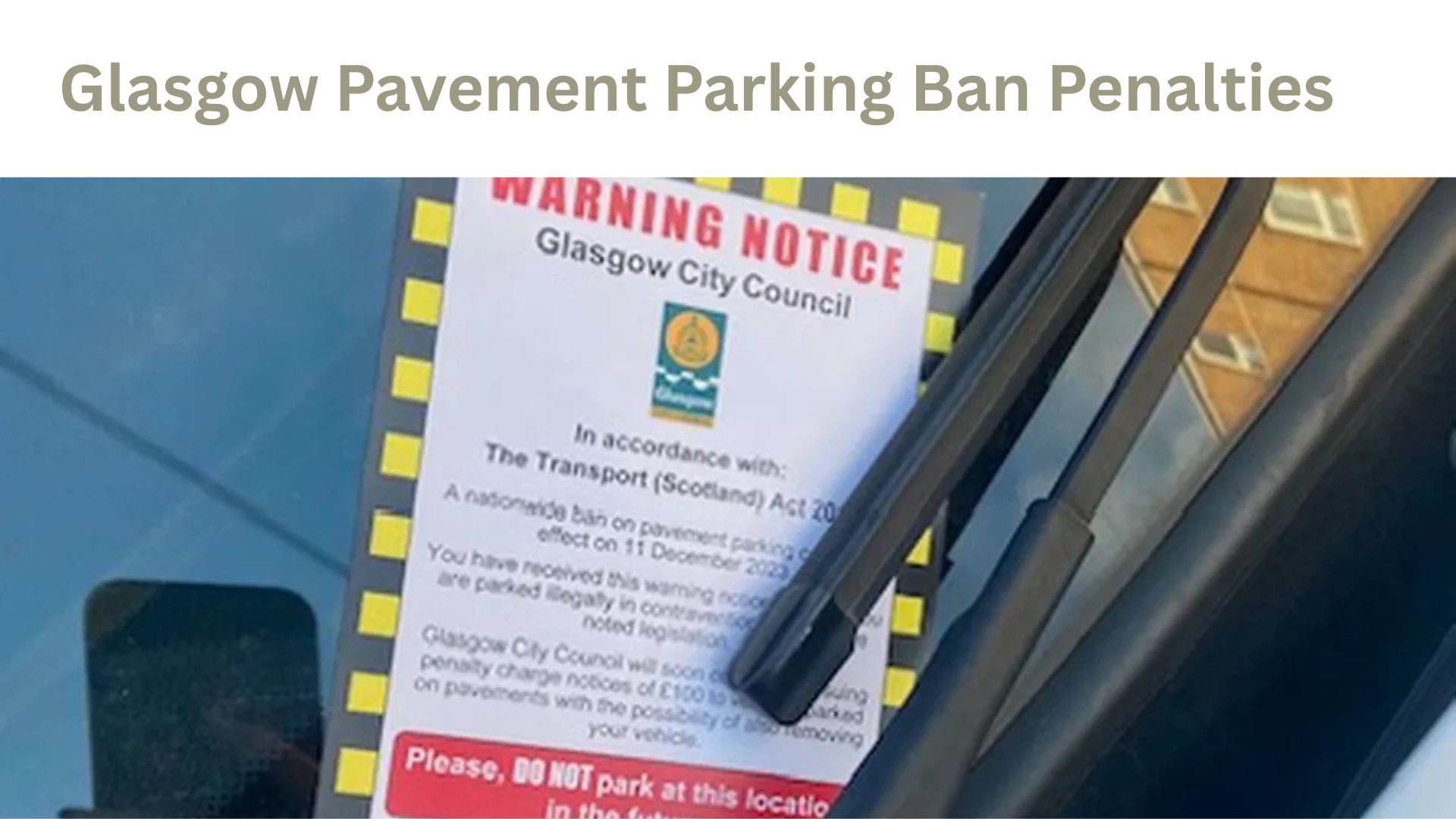
Parking in the wrong place can now cost drivers in Glasgow more than just angry looks from pedestrians. With the Glasgow pavement parking ban penalties now in full effect, it’s important for drivers to understand what’s allowed, what isn’t, and how much a mistake might cost them.
The rules aim to make the city’s streets safer, especially for pedestrians, wheelchair users, and parents with prams. But if you’re not aware of the details, you could easily find yourself with a fine. Let’s break it down.
Why Has Glasgow Introduced a Pavement Parking Ban?
The ban stems from Scotland’s wider effort to improve road safety and accessibility. Pavement parking may seem harmless to drivers, but for many people, it creates major barriers.
-
Wheelchair users often find blocked pavements impossible to navigate.
-
Parents with pushchairs are forced into the road.
-
Elderly pedestrians face increased risks from tripping or stepping into traffic.
The Scottish Government passed the Transport (Scotland) Act 2019, giving councils like Glasgow the power to enforce penalties for vehicles parked on pavements and at dropped kerbs.
What Are the Rules of the Pavement Parking Ban?
Here’s what drivers in Glasgow need to keep in mind:
-
No Parking on Pavements – Even partially mounting the kerb is not allowed.
-
No Double Parking – You cannot park more than 50 cm from the kerb.
-
No Parking at Dropped Kerbs – These spots are meant for pedestrians and wheelchair access.
Local authorities now have the power to issue fines if you break these rules.
Glasgow Pavement Parking Ban Penalties
The penalties for pavement parking in Glasgow are designed to deter repeat offenders.
-
Standard Fine: £100
-
Early Payment Discount: Reduced to £50 if paid within 14 days
-
Non-Payment Consequences: Late payments may result in further legal action and higher costs
These penalties are consistent across Scotland, making the rules clear and easy to follow wherever you drive.
Exceptions to the Rules
There are a few circumstances where exemptions might apply:
-
Emergency vehicles carrying out duties
-
Utility or road maintenance vehicles with temporary permission
-
Certain areas where councils grant exemptions (marked with signs)
For everyday drivers, however, the rule is simple: don’t park on the pavement, at dropped kerbs, or double park.
Impact on Drivers and Residents
While some motorists argue that pavement parking is sometimes necessary on narrow streets, the ban prioritizes pedestrian safety. For residents, this means:
-
Safer walking conditions
-
Easier access for wheelchairs and prams
-
A more pedestrian-friendly city environment
For drivers, it’s a reminder to plan parking more carefully, even if it means walking a little farther from your destination.
FAQs on Glasgow Pavement Parking Ban Penalties
1. How much is the fine for pavement parking in Glasgow?
The standard penalty is £100, reduced to £50 if paid within 14 days.
2. Can I partially park on the pavement to leave space on the road?
No. Any pavement parking, even with just two wheels on the kerb, is banned.
3. Are there any exemptions?
Yes, but only for emergency or utility vehicles, or specific council-approved areas.
4. When did the ban start?
The ban came into effect in 2023, following the implementation of the Transport (Scotland) Act 2019.
5. Does the ban apply across Scotland or just Glasgow?
The legislation applies across Scotland, but enforcement is managed locally by councils such as Glasgow City Council.
Conclusion
The Glasgow pavement parking ban penalties are clear: if you park on pavements, at dropped kerbs, or double park, you risk a fine of up to £100. The ban prioritizes pedestrians and makes the city safer and more accessible for everyone.